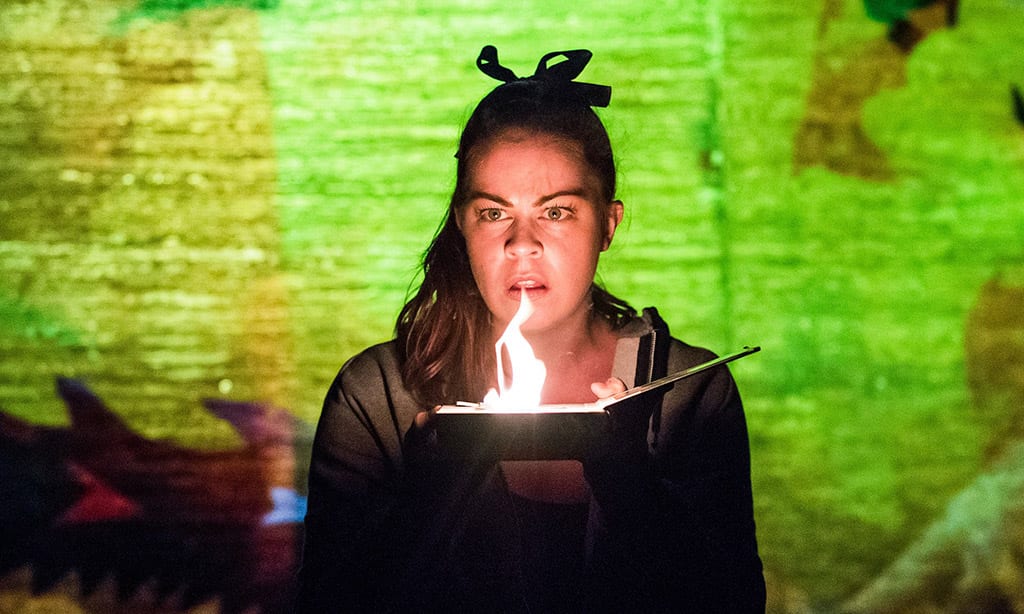Tomorrow I was always a lion is poignant portrayal of one woman’s return from an incurable disease. Adapted from Arnhild Lauveng’s memoir of her journey through schizophrenia, this performance is a powerful testament to the strength of the human spirit. Vladimir Shcherban’s play is a sensitive portrayal of Arnhild’s personal journey. Fusing a first-person account of the gradual erosion of Arnhild’s sense of self with a detached, clinical dialogue and details of her treatment, the performance transforms the memoir into a sensory experience which immerses the audience in Arnhild’s complex and fluid interior landscape.
This performance will leave you shaken but also uplifted. A stark stage setting draws attention to the confident physicality of the cast who translate Arnhild’s memoir into a dynamic, visceral sensory world. Tomorrow I Was Always a Lion renders visible and audible the complex, private internal world of a survivor of this incurable disease. Through inspired lighting and soundscapes Vladimir Shcherban, submerges the audience in Arnhild’s experience of schizophrenia and the process of her recovery.
The clarity of Shcherban’s direction and the sumptuous stage props foreground the importance of storytelling in our relationship to the world. This play is, foremost, a demonstration of the evocative power of art. Each scene is a sympathetic vignette of a life lived in restraints but lived none the less, a detour on the road to the future, as one performer characterizes Arnhild’s illness. Shcherban’s dialogue focuses on the language we use to describe otherness and reveals the violence of a mental health system which renders patients mute despite their screams.
Arnhild’s story is taken up by each member of the cast in turn. Each performer brings a unique perspective to this exploration of a complex world. Emily Houghton’s vulnerable Arnhild juxtaposes a painful naïveté with an acute awareness of the deterioration of her world. Samantha Pearl brings a raw sensitivity and emotional depth to her characterisation of Arnhild’s relationship with her family, while Grace Andrews’s evocative voice reveals the internal dissonance of Arnhild’s identity as her song, at first powerful and beautiful, becomes achingly distorted. Oliver Bennett embodies the chaotic energy of anxiety as ‘The Captain’ who haunts Arnhild and Alex Robertson’s upbeat portrayal of a compassionate nurse introduces a poignant humour. It is this undercurrent of humour which creates the ultimately hopeful tone of this performance.
Shcherban’s play explores the ways in which we perceive and engage with difference and challenges the limits of control and compassion. Through invoking Arnhild’s struggle to regain her independence, and her acceptance that her experience is an essential part of who she is, Shcherban has created a portrait of a woman struggling to reconstruct her identity in a hostile world. Tomorrow I Was Always a Lion is a moving reflection on the meanings we attach to the notion of ‘health’.
Arnhild Lauveng’s memoir poignantly demonstrates the success of compassion and the failure of segregation when engaging with mental illness. A post-performance Q&A invites spectators to share their own experiences of mental illness, revealing the significance of this challenging topic on communities. Vladimir Shcherban’s Tomorrow I Was Always a Lion is a cry for respect and a testament to the power of hope.

